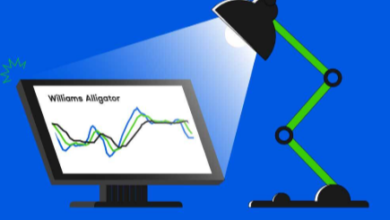How Accounting Software Integration Boosts Accuracy

Modern business is data-driven and rapid, therefore financial accuracy is crucial. A simple accounting error can cause misreported financial statements, compliance concerns, and lost revenue. As firms grow, financial data management becomes more complicated. Manual processes are still common but error-prone. Here is where accounting software integration comes to the picture. By combining accounting software with business account, CRM, inventory management, and e-commerce platforms, firms may improve financial data accuracy, decrease human errors, and streamline processes. Integration of accounting software improves financial workflow accuracy and reduces errors.
Accuracy Matters in Accounting
Any successful business relies on financial precision. Unreliable financial records can lead to costly mistakes like tax filings, budgeting mistakes, and regulatory penalties. Traditional accounting techniques use manual data entry, which increases human error. If you enter wrong quantities, duplicate data, or miss entries, they can add up and cause long-term issues. These dangers must be reduced to protect financial data. This is where accounting software integration helps by connecting financial systems to other company tools.
Automation Reduces Human Error
Integration of accounting software reduces financial process errors. Manually entering data between systems sometimes leads to transposed numbers and formula errors. Integrating platforms effortlessly transfers sales data from an e-commerce site and customer payment data from a CRM. This reduces human data entry and financial reporting errors. If an order is placed on an e-commerce platform, the integrated accounting system changes in real time to precisely reflect the transaction in the business’s financial records without personnel input.
Live Financial Updates
Integrating accounting software with other systems keeps financial records current, the other major benefit. Manually updating financial records in traditional accounting might delay recent transactions, causing financial reporting errors. Accounting software integration fixes this by real-time financial data updates. This helps fast-paced firms like e-commerce, where transactions happen constantly. Online payments promptly update accounts payable and receivable, keeping financial information current. Since organisations can use the most accurate data to make choices, real-time updates help them prevent mistakes and missed opportunities.
Simplifying Financial Reporting
Manually creating financial reports is time-consuming and error-prone. Businesses often need to combine data from multiple systems to provide comprehensive financial reports. Inconsistencies between accounting software systems might lead to erroneous reports without integration. Businesses may synchronise data from all platforms to ensure consistent, up-to-date financial reports with integration. The arduous and error-prone process of manual system reconciliation is also eliminated. By integrating your accounting software with inventory management and sales platforms, your profit and loss statement shows actual sales, inventory costs, and other important data, providing you a clear picture of the business’s financial health.
See also: The Power of Barcode Scanners in Streamlining Business Operations
Deleting Duplicate Data
Duplicate data entries plague manual accounting operations. Information entered separately into several systems raises the chance of duplication, causing financial report anomalies. For instance, manually entering customer data into the CRM and accounting system causes errors and confusion. Accounting software integration synchronises data across platforms, solving this issue. Accounting updates immediately when a new customer is introduced to the CRM. The system also updates records automatically after payments, preventing customer and transaction duplication. This synchronisation eliminates duplicate errors and assures financial data accuracy.
Reduce Time-Consuming Repetitions
Manually doing accounting’s many repetitive processes takes time. Invoices, payments, and bank reconciliations require manual input, which raises error risk. Integration of accounting software with other corporate systems automates these tasks. The accounting software automatically invoices and changes accounts receivable when the sales system processes an order. Similarly, payment data can be updated live. Automating these procedures eliminates errors and frees up time for the accounting team to focus on strategic responsibilities like financial analysis and planning.
System Data Consistency Improvement
Financial reporting and decision-making require data consistency. Data fragmentation from CRMs, e-commerce platforms, and payroll applications might impair financial records. Accounting software connection promotes data consistency. Accounting software immediately updates when inventory is updated in the inventory management system, ensuring that financial records accurately represent stock levels and expenses. Financial reporting inaccuracies are reduced because all systems are synchronised and reflect the same data.
Compliance and Risk Reduction
Companies struggle to comply with tax laws, industry rules, and internal procedures. Inaccurate financial records can result in fines or legal troubles. Accounting software can be integrated with other corporate systems to ensure accurate, up-to-date, and regulatory-compliant financial data. Accounting and tax software integrated together automatically apply the correct tax rates and record all tax-related data. Employees are paid accurately and deductions, benefits, and other payroll-related things are calculated according to current rules when integrated with payroll systems. This deters compliance infractions and saves organisations money.
Conclusion
Today’s competitive corporate environment requires financial accuracy. Accounting software integration automates data entry, provides real-time updates, and ensures system consistency, enhancing accuracy and eliminating errors. Integrating accounting software with other company tools eliminates manual processes, reduces human errors, and boosts operational efficiency.




